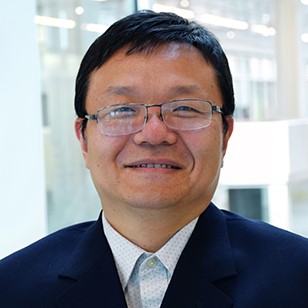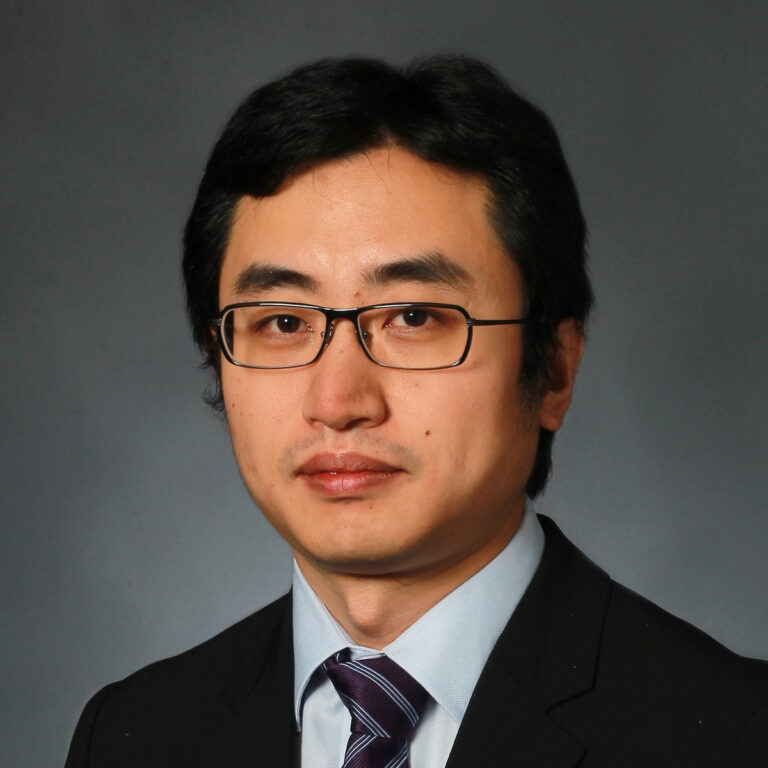
Haixu Tang, Co-Director, Faculty Director of Education and Workforce Development & PI, IU
Prof. Tang most recently worked as an assistant project scientist in the Department of Computer Science and Engineering, University of California, San Diego. He is a recipient of the NSF CAREER Award in 2007, and the outstanding junior faculty award in 2009.

Michael Reiter, Co-Director, Faculty Director on Industry Collaboration & PI, Duke
Prof. Reiter is a James B. Duke Distinguished Professor of Computer Science and Electrical & Computer Engineering at Duke University. He received the B.S. degree in mathematical sciences from the University of North Carolina at Chapel Hill (UNC) in 1989, and the M.S. and Ph.D. degrees in computer science from Cornell University in 1991 and 1993, respectively. His previous positions include Director of Secure Systems Research at Bell Labs; Professor of Electrical & Computer Engineering and Computer Science at Carnegie Mellon University, where he was the founding Technical Director of CyLab; and Distinguished Professor of Computer Science at UNC.

Danfeng Zhang, PI, Duke
Prof. Zhang is an Associate Professor at Duke University. He received his B.S. and M.S. in Computer Science from Peking University, and his Ph.D. in Computer Science from Cornell University. The goal of his research is to prove the absence of software errors, and further, generate fixes when things go wrong. His research currently includes security, privacy, type safety and software correctness.

Ninghui Li, Purdue
Prof. Li is a Samuel D. Conte Professor of Computer Science at Purdue University. He received a Bachelor’s degree from the University of Science and Technology of China (USTC) in 1993, and a Ph.D. in Computer Science from New York University in 2000. His research interests are in security and privacy, and he has published over 200 referred papers in these areas. His 2007 paper “t-Closeness: Privacy Beyond k-Anonymity and l-Diversity” received the ICDE 2017 Influential Paper award.

Zhiqiang Lin, Faculty Director on Industry Collaboration & PI, OSU
Prof. Lin is a Distinguished Professor of Engineering in the Department of Computer Science and Engineering (CSE) at The Ohio State University (OSU), and the director of Computer Security Laboratory (SecLab). He is also a faculty member at Institute for Cybersecurity and Digital Trust (ICDT), Center for Automotive Research (CAR), Translational Data Analytics Institute (TDAI), and NSF AI Institute for Future Edge Networks and Distributed Intelligence (AI-Edge).

Lorrie Cranor, PI, CMU
Prof. Cranor is a Professor of Computer Science and of Engineering and Public Policy at Carnegie Mellon University where she is director of the CyLab Usable Privacy and Security Laboratory (CUPS) and co-director of the MSIT-Privacy Engineering masters program. In 2016 she served as Chief Technologist at the US Federal Trade Commission, working in the office of Chairwoman Ramirez. She is also a co-founder of Wombat Security Technologies, Inc, a security awareness training company.

Raquel Hill, Faculty Director on Broadening Participation & PI, Spelman
Dr. Hill’s primary research interests span the areas of trust, security, and data privacy. Her more recent work on data privacy uses the semantics of data to create privacy preserving frameworks for text data. Prior to coming to Spelman, she was associate professor of computer science in the School of Informatics, Computing, and Engineering at Indiana University.

Fan Zhang, PI, Yale
Prof. Zhang is an Assistant Professor in Computer Science at Yale University. His research focuses on the security, privacy and scalability of decentralized systems, in particular those enabled by blockchains and trusted execution environments (TEEs).
Collaborators

XiaoFeng Wang, Former Director & Former Lead PI, IU
Prof. Wang’s research focuses on systems security and data privacy with a specialization on security and privacy issues in mobile and cloud computing, cellular networks and intelligent systems, and privacy issues in dissemination and computation of human genomic data.

Jing Su, IU
Dr. Su is an Associate Professor at the Department of Biostatistics at Indiana University School of Medicine. With a Ph.D. in Biomedical Engineering from the Georgia Institute of Technology and Emory University, Dr. Su has dedicated his career to the study of biomedical informatics, graph-based machine learning, big data integration and mining, and computational models to identify clinical phenotypic traits of patient subgroups, understand the underlying mechanisms of such subgroups, and apply actionable knowledge in precision medicine and clinical decision-making.

Chenghong Wang, IU
Prof. Wang is an assistant professor in the Department of Computer Science at Indiana University. His research focuses on developing full-stack solutions for privacy-preserving data sharing and analytics (PPDSA), which spans theory, systems, and architecture advancements.
